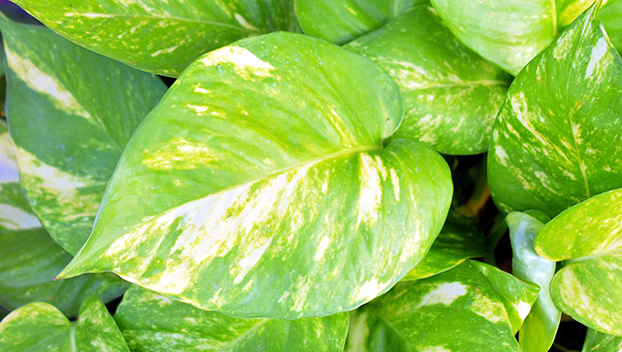TEXAS CERTIFIED EXPERT GARDENER — Here is reliable information on plant toxicity
Published 12:04 am Wednesday, January 3, 2024

- Pothos ingestion symptoms are immediately apparent after a pet “snacks” on the plant. Plant toxins cause tongue swelling and vomiting with difficulty breathing. More severe symptoms can include seizures and the loss of consciousness. (pethelpful.com)
|
Getting your Trinity Audio player ready...
|
A reader has asked a question: where she can locate reliable information on house plants which are unsafe for her 60lb dog?
She stated that she doesn’t trust the information she has found on the internet. Let me begin by stating, good for you, we should always be cautious when reviewing information from web sites!
This gardener doesn’t place too much trust in most articles I read on the web without “digging” (yes, pun intended) into specifics of the information and researching details.
Trending
Information should be validated (trust but verify method) during the review (research) process. A web pages ‘date published’ and ‘author’ information is necessary and should be scrutinized judiciously to ensure the information is accurate and substantive.
Author credentials also aid in determining published information validity. Note: information is “time-sensitive,” quickly becoming “stale” diminishing the information’s usefulness.
There are an extraordinary number of web sites that list houseplants that are toxic to pets and if you enter “houseplants and pets toxicity” into Google’s web browser the response you receive is 187,000,000 results.
It would be impossible for us to scrutinize so many web sites and to thoroughly review the published information. So, what is the best way to find accurate, reliable information from a trustworthy source?
For me, it begins with utilizing specific web sites which drastically limit web browser search responses, and where I know the source of the information is published by experts, i.e. such as the information provided on university web sites or from university cooperative extension sites, since the published information is from reputable experts in their fields of study.
It is useful (for me) to compare information across websites for accuracy, conformity and validation. As many of you have noticed in some of the articles written university web sites and university cooperative extensions are often cited, such as Texas A & M University: https://aggie-horticulture.tamu.edu, or the University of Alabama Cooperative Extension Service: https://mg.aces.edu.
Trending
Numerous other trusted sites have been referenced over the years from State & Federal governmental agencies to hospitals (Mayo clinic), and many other reputable sites.
Before answering the reader’s question, let me start by saying that unless the plant or plant product is included in the ingredients list of your animal’s meal, i.e. dog or cat food (or insert other pet type: bird, rodent, reptiles, amphibian, arachnid, insect, etc.) it is never wise to allow pets to consume plants of any type!
It is incumbent upon us as pet parents to keep toxic plants away from our pets and monitor and train our pets, to keep them from consuming things which can lead to problems. Of course, this is easier said than done, as most pet owners have on occasion witnessed pets don’t always conform to “house rules” choosing to snack on lawn grasses, landscape plants or houseplants.
This can be hugely problematic for the pet and pet parent. The American Society for the Prevention of Cruelty to Animals (ASPCA) states there are thousands of plants which could harm our pets if ingested and that each plant can cause varying degrees of distress from mild to potentially fatal! Pets should not be allowed access to the following houseplants:
- Philodendron (most varieties) – symptoms of ingestion include excessive drooling, heart arrythmia, loss of appetite, dilated pupils, labored breathing, and diarrhea.
- Weeping fig (fiddle leaf fig)- ingestion symptoms can include pawing at the face, agitation, redness of the skin, excessive drooling, abdominal pain, and diarrhea.
- Corn Plant (dracaena frangrans) – when ingested symptoms include vomiting and appetite loss for dogs and cats. In cats specifically, it can cause difficulty breathing and an increased heart rate.
- Aloe Plant (aloe vera) – some common symptoms include vomiting, diarrhea and tremors.
- Lilies (most varieties) – Although some lily varieties pose a threat to dogs, cat owners should be mindful and avoid these plants entirely. Blooms & pollen are extremely toxic to felines which can lead to kidney failure. Symptoms include drooling, vomiting, and loss of appetite.
- Jade Plant (crassula argentea)- when ingested symptoms include vomiting and decreased heart rate.
- Dieffenbachia (dumb cane) – leaf ingestion causes severe swelling of the mouth and tongue creating difficulty breathing and swallowing.
- Pothos (epipremnun aureum) – ingestion symptoms include oral irritation with burning of the mouth, tongue, and lips creating excessive drooling and vomiting with difficulty breathing.
Our pets also enjoy ‘exploring’ the world around them and our outdoor areas, so it is important for us as responsible pet owners to protect and safeguard them from toxic plants while they explore.
This list is not an exhaustive list of toxic plants, nor are the plants listed in order of toxicity, but many gardeners have some of these plants growing: Azalea, Amaryllis, Carnations, Begonia, Castor bean, Mums, Coleus , Cyclamen, Daffodil, English ivy, Gladiola, Hosta, Lilies, Oleander, Pencil cactus, Sago palm, Tomato, Pepper, Potato, Eggplant, Tulip, Yew, Morning glory, Caladium and Asparagus fern.
Symptoms from ingesting plants above include vomiting, diarrhea, excessive drooling which can be further compounded by difficulty breathing, swallowing, and seizures, which can lead to paralysis, kidney failure, anorexia, abdominal pain, kidney and liver failure, coma, incoordination, and muscle tremors proving fatal from cardiac arrest.
Contact your veterinarian immediately or call the ASPCA Animal Poison Control Center at 888-426-4435 if you suspect your pets have ingested a toxic plant.
Let’s go out and grow ourselves a greener, more sustainable world, one (toxic-free) plant at a time!
Send Certified Texas Expert Gardener John Green your questions and please continue sending comments to jongreene57@gmail.com.





